News
UNESCO urges use of radio as unique instrument of peace
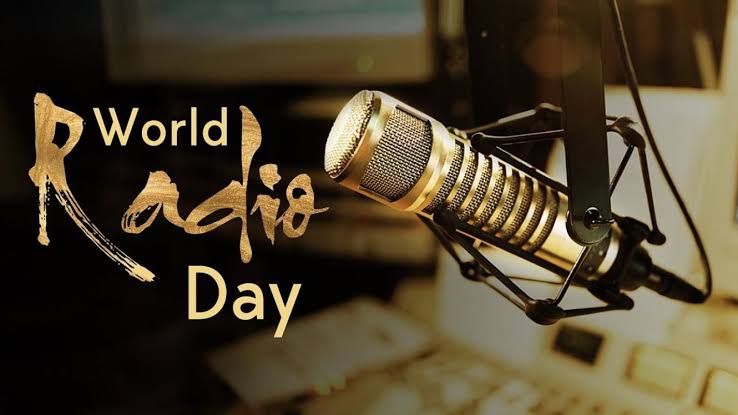
UNESCO urges use of radio as unique instrument of peace
UN Educational, Scientific and Cultural Organisation (UNESCO) has urged everyone not only to celebrate radio’s potential, but also, and especially, to make greater use of radio as a unique instrument of peace.
UNESCO’s Director -General, Ms Audrey Azoulay, made the call on Monday in her message to mark the World Radio Day, observed annually on Feb. 13 to celebrates the power of the medium.
The 2023 theme was “Radio and Peace”, highlighting its role in conflict prevention and peacebuilding.
“Since it was developed about a century ago, radio has proven to be an exceptional means of communication, debate and exchange – indeed, it is one of the most accessible and widespread types of media,” Azoulay said.
Radio’s accessibility and widespread reach have made it a critical tool for UNESCO, particularly during the COVID-19 pandemic, when it was necessary to reach students who were out of school.
The UN agency established a system to teach children over the airwaves, benefiting scores of learners in many countries, including in sub-Saharan Africa where less than a quarter of people have internet access.
RELATED STORY: Naira begins new week on positive note, exchanges at N461 to dollar
“Radio is thus very often the medium of last resort. We are seeing this again in Afghanistan, where girls and women have been suddenly and unfairly denied their right to learn, study and teach,” Azoulay said.
For Ms Francesca Mold, Chief of Strategic Communications in the UN’s Department of Peace Operations (DPO), this year’s theme could not be more relevant.
DPO recently kicked off a year-long campaign to commemorate the 75th anniversary of UN Peacekeeping.
“Operating as part of UN peacekeeping missions, we operate radio networks which are vital to reaching large-scale and diverse communities, particularly in places where internet penetration is poor and the population is very mobile due to conflict and displacement.”
UN Peacekeeping was established in 1948 and since then, 71 missions have been deployed to post-conflict countries around the world as these operations have to explain their mandates to local populations, communication is essential.
Radio officially became part of peacekeeping in 1989 under the UN Transition Assistance Group (UNTAG) in Namibia, a political mission established to ensure the holding of free and fair elections there.
UNTAG created content on issues such as voter registration, which was given to local broadcasters for dissemination. The first significant peacekeeping radio station arrived a few years later, with the UN’s Mission in Cambodia.
“Perhaps the best tool in our toolbox has been UN Peacekeeping radio stations,” said Douglas Coffman from the Peace and Security Section of the UN’s Department of Global Communications (DGC).
Coffman served in the Balkans in the late 1990s, in the wake of the series of wars that erupted following the breakup of Yugoslavia.
“Radio is important because the UN can speak to the local population without going through the filter of biased media,” he said.
“These are media that have been part of the problem in the conflict. They don’t necessarily want to help us get our messages out. So, having the ability to speak directly and in real time to the communities we’re working for, is essential.”
Radio has played a pivotal role in the world’s youngest nation, South Sudan, which has suffered periods of brutal fighting and displacement since gaining independence in 2011.
Radio Miraya at the UN Mission in the country, UNMISS, provides a platform for both establishing and consolidating peace. In fact, it is “the partner for peace for the Government and the people of South Sudan,” according to Mr Ben Malor, UNMISS Chief of Communications and Public Information.
Some of the station’s programmes include a weekday Breakfast Show, consisting of news reports and interviews with Government ministers, civil society representatives and other key figures.
Another show called ‘Roundtable’, which airs on Saturdays, brings together ministers, senior officials and influencers for a political discussion on sometimes thorny issues, such as inter-communal violence and cattle raiding.
Other programmes target young people, and there is also a dedicated phone line for women who want to call into the station – a way to give voice to women in a society where they need to be heard.
“Our purpose, whatever radio is doing, whether we are online and we are on air, and people are calling in, is to reinforce the togetherness of the people across political divides, across religious divides, across ethnic divides, across gender divides, then across age divides,” Malor said.
Radio is still the primary medium for conveying information to South Sudan’s 11 million people, and Radio Miraya is in a constant state of readjustment and self-evaluation to better support UNMISS in delivering on its mandate.
Recently, the Government asked for the UN’s support for the electoral process that will culminate with a vote in December 2024.
“Radio Miraya is going to be playing its part as best as possible, as much as we get the cooperation of the Government of South Sudan, so that we will do everything to support the leadership for the success of this process,.
“So, there is constant examination, constant restructuring, constant improvement.”
UNESCO urges use of radio as unique instrument of peace
News
WAFU Qualifiers: Mailantarki Care FC beat Nigeria’s Flying Eagles 1-0
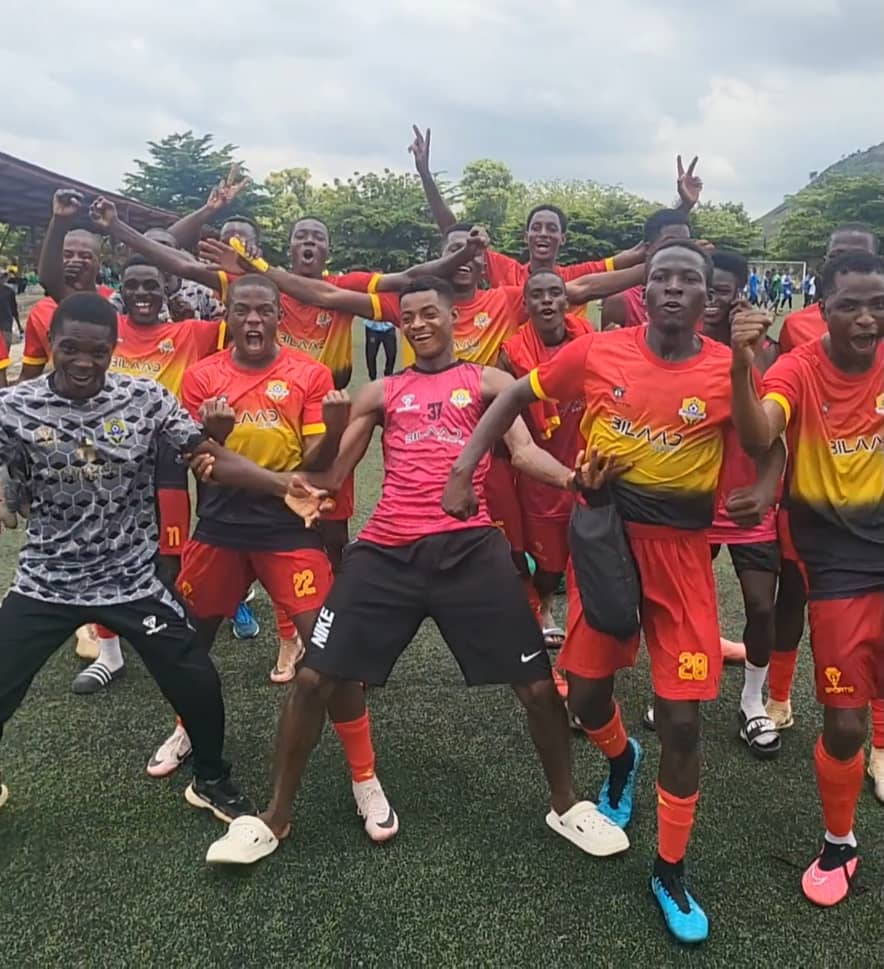
WAFU Qualifiers: Mailantarki Care FC beat Nigeria’s Flying Eagles 1-0
Nigeria’s Flying Eagles …
The Nigeria National team U-20 (Flying Eagles) suffered a defeat in the hands of Mailantarki Care FC in one of its series of preparatory games on Wednesday in Abuja.
The reigning Champions of the 2024 International Youth Championship in Denmark (Dana Cup) produced an all-around performance against the Nigeria National team outfit, the Flying Eagles at the FIFA Goal Project pitch of the MKO Abiola Stadium.
Coach Aliyu Zubairu’s U-20 team began preparation last week ahead of the upcoming WAFU Championship scheduled in Togo, where the representatives of the zone in the 2025 U-20 nations cup will emerge.
Sensational wing wizard Miko Dalha scored the only goal of the game following a delightful footwork before smashing into the near post before the break.
The host could have equalized from the spot deep into the game just for Mailantarki goalie Abbati Muhammed to punch away the penalty kick. However, the Flying Eagles defeated Water FC 1-nil in its first game courtesy of Bayelsa United forward Rabiu Abdullahi.
News
USAID Urges Adamawa Officials to Sustain State2State Interventions and Reforms
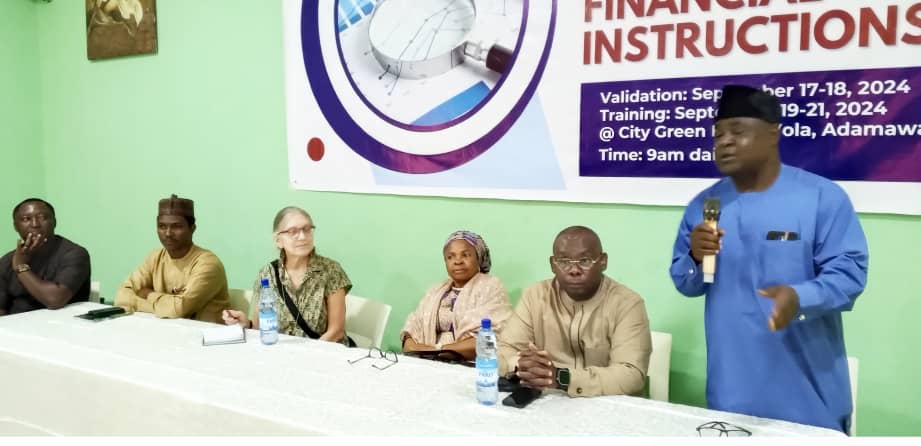
USAID Urges Adamawa Officials to Sustain State2State Interventions and Reforms
The United States Agency for International Development (USAID) has called on Adamawa State officials to continue supporting various interventions and reforms to foster sustainable development across key sectors. The call was made during a review of Adamawa’s financial instructions held in Yola on Wednesday.
Aduku Godwin, the Regional Advisor for USAID’s Learning to Read Project, emphasized the importance of maintaining these reforms to drive long-term progress in areas such as governance, education, and infrastructure development. He affirmed USAID’s commitment to collaborating with the State2State team in Adamawa to enhance good governance and ensure quality education in the state.
Machill Maxwell, USAID Project Management Specialist for Integrated Governance, commended the improvements seen in Adamawa’s health, education, and Water, Sanitation, and Hygiene (WASH) sectors. He stressed the need for efficient and accountable use of resources, pointing out that past inefficiencies had limited the impact of significant financial investments.
Hajiya Nafisa Ado, Senior Technical Assistant and Learning Advisor for the Learn to Read Project, expressed satisfaction with the partnership aimed at building the capacity of state officials to promote transparency, accountability, and effectiveness in governance and education.
Similar collaborative efforts are also underway in Bauchi, Gombe, Ebonyi, and Sokoto States as part of USAID’s broader initiative to support state-level reforms in
News
Jos DisCo urges Gombe customers to reciprocate improved power supply

Jos DisCo urges Gombe customers to reciprocate improved power supply
The Jos Electricity Distribution Plc (JED), on Wednesday, appealed to its customers in Gombe State to pay their electricity bills as a way of reciprocating the improved power supply in the state and its franchise.
Mr Abdu Mohammed, the managing director of JED, made the call while speaking at a customer consultative forum held in Gombe.
Mohammed decried the non-payment of electricity bills by consumers in the state, noting that the attitude of energy users in that regard was posing a big challenge to the company.
Represented by Mr Yerima Baba, the manager of Doma regional office, Mr Mohammed said the customers had a duty to pay for services that they have enjoyed.
According to him, this will enable JED sustain the improvement towards guaranteeing customers’ satisfaction across its franchise.
He stated that in the month of August, the energy bill for the state was N1.3 billion and only about 15.4 per cent of the total bills charged had been paid by customers.
“The electricity business is changing gradually and drastically. It is well known that Jos electricity is giving out the total volume of energy.
“There are feeders we give up to 100 per cent energy; this means that if translated to money, our monthly energy increases as well as the bill.
“But unfortunately, the response from the customers is appalling, so bad that if it continues like that, it would be difficult to sustain the business.
“We are consuming the total energy that is worth over N2 billion yet, the income generated from the two regions in Gombe State as at Tuesday September 17 is less than N200 million.
“We were billed over N1.3 billion for the month of August for the whole of Gombe and Doma,” he said.
Mohammed said there was high level of apathy in terms of payment of electricity bills, lamenting that people were paying just what they like.
“We are calling on customers to reciprocate now that energy is stable and availability is increasing; we are out to serve you please help us to serve you better,” he said.
Mohammed also decried the high rate of energy theft and vandalism which he said was affecting the company.
Also speaking, Mr Saad Abubakar, the manager of Gombe regional office said JED was working to improve on its metering, adding that improvements and customers’ satisfaction remained a critical component of the organisation.
Abubakar commended the customers for turning out to engage with JED on how to improve service delivery while assuring them that all genuine concerns raised would be addressed.
Our correspondent reports that customers during the engagement lauded JED for improved power supply in the state.
-

 Health5 months ago
Health5 months agoOnly 58,000 doctors renewed licence out of 130,000 registered doctors – MDCN
-

 Business1 year ago
Business1 year agoNew Rates: ‘I borrowed money to finance this business…’ – Petroleum Marketer cries out over Non-supply of products by the NNPCL
-

 Entertainment2 months ago
Entertainment2 months agoBBNaija Season 9: TAMI Duo Evicted After Low Vote Count
-
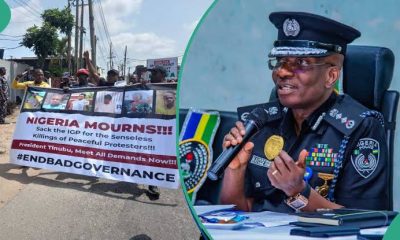
 Defence & Security1 month ago
Defence & Security1 month agoOrganisers Demand IGP’s Dismissal Over Fatal Protest Crackdown
-
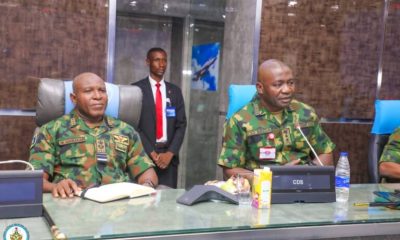
 Defence & Security1 month ago
Defence & Security1 month ago“Defence Chief Praises Strong Inter-Service Cooperation for Operational Successes”
-

 Business2 years ago
Business2 years agoNew Naira Notes: We Have No Information On The Supreme Court Ruling – CBN
-
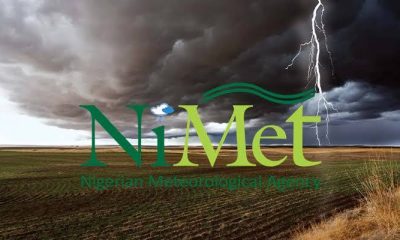
 Weather2 months ago
Weather2 months agoNiMet Forecasts 3 Days Thunderstorms, Rain Nationwide
-
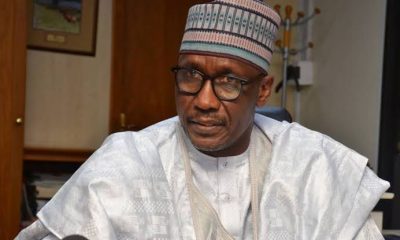
 National1 month ago
National1 month agoNNPCL CEO Kyari Promises to Reveal Truth Amid Economic Sabotage Allegations
